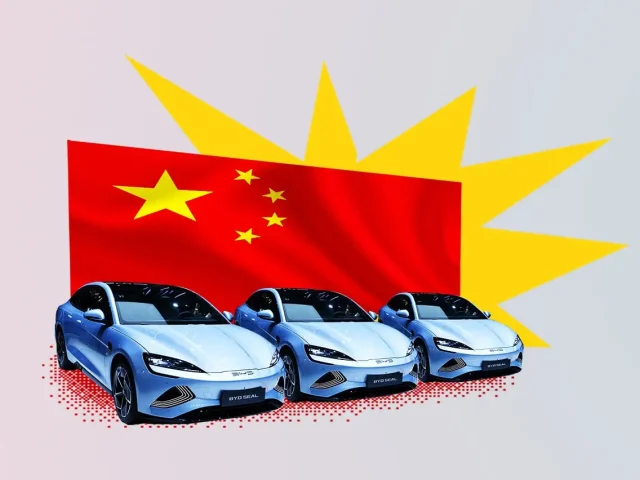
The European Union and China appear to be moving closer to a solution to the tensions linked to the tariffs imposed by Brussels on Chinese electric cars.
The possible introduction of a minimum price for electric cars exported to Europe emerges as a proposal that could satisfy both parties, marking an important step towards a new trade balance. However, the context remains marked by further tensions, as demonstrated by the EU’s recent appeal to the World Trade Organization (WTO) against Chinese tariffs on European brandy. The tariffs on Chinese electric cars were introduced by the European Union to counter what Brussels considers unfair competition resulting from massive government subsidies. These subsidies allow Chinese manufacturers to maintain lower prices, penalizing European manufacturers in a sector crucial to the ecological transition.
The hypothesis of a minimum price for Chinese electric cars, reported by the Global Times and confirmed by statements by the chairman of the European Parliament’s Trade Committee, Bernd Lange, represents a possible solution that could mitigate market distortions without resorting to further protectionist measures. The bilateral meeting between Chinese President Xi Jinping and German Chancellor Olaf Scholz, on the sidelines of the G20 in Rio de Janeiro, played a key role in the rapprochement. Beijing, according to the Xinhua report, reiterated its willingness to resolve the issue through dialogue and consultations, asking Berlin to mediate in the dispute. Zhou Mi, a researcher at the Chinese Academy of International Trade and Economic Cooperation, called the path of dialogue “always the right choice” and expressed hope for a solution that takes into account the concerns of both sides. This position reflects China’s approach aimed at avoiding the escalation of trade disputes and preserving global economic stability. The potential agreement between China and the EU is not only a significant milestone for the electric car sector, but also a model for managing trade disputes in other areas. A compromise on this issue could set a positive precedent, demonstrating that dialogue is a viable way to resolve complex issues without resorting to trade wars that penalize both sides.
While the negotiation on electric cars marks potential progress, the EU is facing another dispute with Beijing. Brussels has announced a challenge to the WTO against China’s provisional duties on imports of European brandy, which it considers to be in breach of international rules. The European Commission has stressed that the Chinese measures are not supported by sufficient evidence to demonstrate a real risk of damage to the local brandy industry. This challenge is a concrete step to protect European economic sectors from measures that Brussels deems arbitrary or disproportionate.
Valdis Dombrovskis, Vice-President of the European Commission responsible for Trade, reiterated the EU’s commitment to combating the misuse of trade defence instruments, stressing that the European bloc takes these practices very seriously, especially when they affect strategic sectors of its economy. These developments highlight the complexity of trade relations between the European Union and China. On the one hand, both sides recognise the importance of economic cooperation and are committed to finding shared solutions. On the other hand, differences in economic models and mutual accusations of unfair practices make the relationship unstable and subject to periodic tensions. The electric car deal, if confirmed, could serve as a virtuous example of how to address global trade challenges in a multilateral context. At the same time, tensions over brandy and other potential disputes highlight the need for a strategic approach by the EU, balancing dialogue with decisive measures to protect its interests. Trade relations between China and the European Union are at a crossroads. While there are signs of compromise in the electric car dispute, other fronts such as that of European brandy continue to test the ability of the two powers to manage their differences. A stable balance will require not only the resolution of current disputes, but also a continued commitment to strengthening multilateral mechanisms, such as the WTO, and promoting fair trade rules. Only in this way will it be possible to build an economic relationship that, despite challenges, can contribute to sustainable and inclusive global growth.



 Subscribe
Subscribe